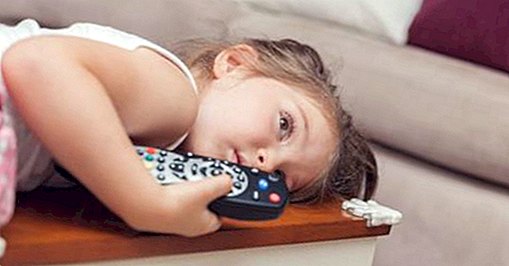How we can talk with children about terror


The blog: Tollabea
The blogger: Béa's life story alone could fill a blog. An orphan, a refugee child, even a mother of 21, a successful communication host with stations in India and Indonesia, a company founded for playful education of children and bankrupt, now an independent and very popular mom blogger.
We like that: This woman is not only incredibly smart and experienced, she also has an unwavering optimism. And you can feel that in every contribution, from the crafting instructions to the education tip. Definitely read!
Terrible things happened in Paris, Brussels - and now also in Germany. Many do not know how to talk about it with the children. Here are some tips on how to do that? without any claim to completeness and wisdom, but with some experience as a mother and a person, who often stood by parents in different situations.
Children take an active part in our lives and experience what touches and moves us. The media are omnipresent and provide images and words that the children just too easily snap up? as well as shreds of adult talk. And in addition to that, they are also intuition animals and feel our moods sensitive ...
To pretend that nothing is going on means to leave her alone with scary thoughts. To tell them too much, with all the terrible details, would confront them with too much grief and violence. What is right? How much can you take off?
We have to differentiate by age:
Until preschool: just respond to questions
Children under the age of 5 are not in the mood for fears or other confusing information. That's why we can assume they'll ask what happened? if they have noticed something.
Besides, for her, death is usually something abstract. Here it is best to respond with short and capped answers and wait for their further questions. "There are suddenly many people died in France," could be enough.
If the famous "Why?" comes, one can answer: "It is evil people who have killed themselves and others." If it continues in the "why?" Chain, then one answer could be: "I do not know exactly, but the police will clear this up."
Best does not show pictures. The children are too young to understand them? straight pictures would frighten them unnecessarily. No matter how busy you are, do not keep on watching TV with all the coverage, it's confusing and it's frightening the kids too. Above all, trying to avoid speculation, even or in the family, how much that could happen to us!
From primary school age: parents should actively seek the conversation
The likelihood that children from about 6 years have noticed something is rather large. Especially if the family tries to ignore them, they may not dare to raise the issue.
Just ask if they have noticed something? and when questions arise, it is important to react to them step by step and to explain to children what has happened. The most important thing is not to get into the details and terrible pictures, even with older children, but to explain the situation relatively succinctly.
I have found on the SciLogs blog of Spektrum der Wissenschaft a very good speech for you, by the religious scholar and pedagogue Marion Mahnke, using the example of the terrorist attacks in Paris:
Something very bad happened on Friday night, a couple of people in Paris committed terrorist attacks, and they injured and killed many people, which is a terrible thing, but you should know that these are things that happen occasionally. Just like accidents, that's terrible and can happen, but we do not need to assume that it happens to US as well.
Terrorists want attention. That's why they usually seek out goals where people look. Famous places for example. Or even events where television and newspapers are already there to report.
And they want to do as much damage as possible to make people afraid and afraid of them. They believe that people will do what the terrorists want. "
(You can read more here)
You can easily admit that it moves and even frightens you. Nevertheless, try to maintain an optimistic attitude and not to cast all doubt on the whole of humanity. Children also know stories and films quite bad guys who do harm? In this case as well, good and clever people will do together not to let this evil win.
In general, more listening than talking yourself!
In general, it helps to ask questions at a certain point and let the child be told, "What did you hear?", "What did you see?", "What's the fear doing?". As with nightmares, it is sometimes more important to empty your own memory than to recharge it.
Finally, a comment by the reader Eva Busch on the terrorist attacks in Paris, which impressed me very much:
"My daughter is 5 and asked what happened in Paris, they get it everywhere, she knows that no one is evil, she herself understands it, she says there is good and evil in the heart of every human being. He's responsible for what he brings out, so I came up with a great explanation she gave. "
Text by Béa Beste, originally published on www.tollabea.de.
Thank you for showing him here.










